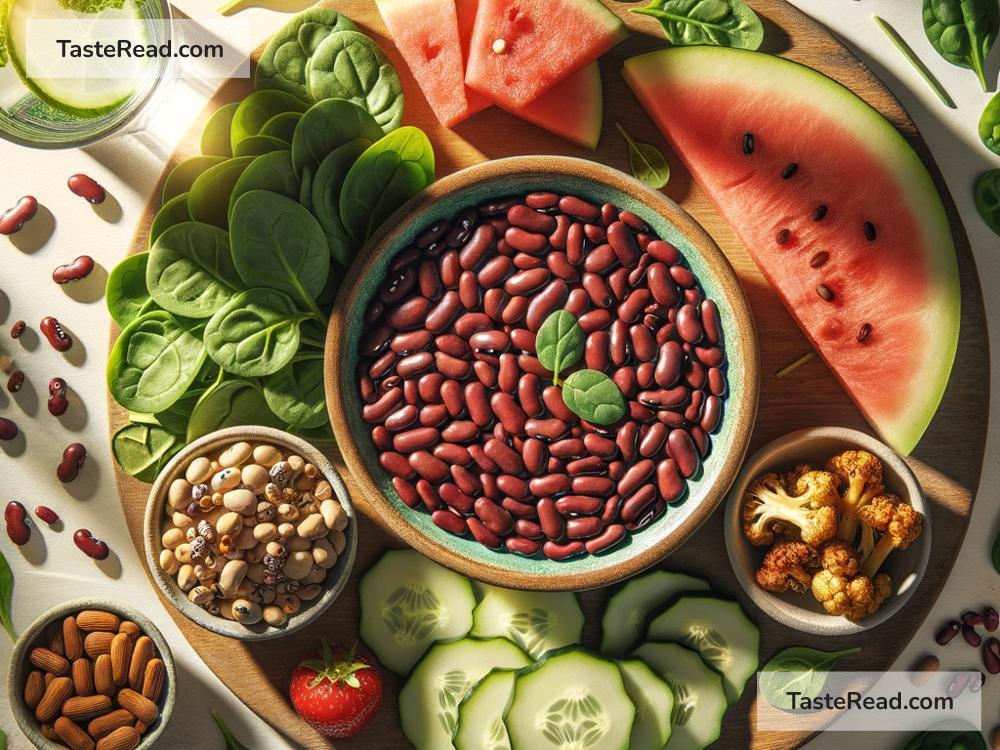Foods That Promote Healthy Creatinine Levels
Creatinine is a waste product released by your body when muscles break down compounds called creatine. Normally, your kidneys help filter creatinine out of your blood, sending it to your urine for removal. But if your kidneys aren’t working properly, creatinine levels can build up, which may signal a kidney problem. Maintaining healthy creatinine levels is essential for your overall well-being, so it’s important to know which foods can help support your kidney health.
If you’re looking for simple ways to promote healthy creatinine levels, adjusting your diet is one of the easiest steps you can take. Certain foods can support kidney function and maintain the balance of creatinine in your body. In this article, we’ll break down the best foods to eat if you want to support your kidneys and stay healthy.
1. Fruits with High Water Content
Fruits are packed with beneficial nutrients, and some are especially good for supporting kidney health. Choosing fruits with high water content is helpful because they keep you hydrated, which assists your kidneys in flushing out toxins like creatinine.
Here are some examples of hydrating fruits:
– Watermelon: Contains plenty of water and antioxidants to promote overall hydration.
– Oranges: Rich in vitamin C, oranges can help keep your kidneys healthier.
– Berries: Strawberries, blueberries, and cranberries are low in potassium yet rich in antioxidants, which support kidney function.
Hydration is essential because it helps your kidneys process waste efficiently, reducing creatinine buildup.
2. Leafy Greens and Low-Potassium Vegetables
Vegetables can be a key part of a kidney-friendly diet. However, it’s important to focus on veggies low in potassium, as too much potassium can overburden compromised kidneys. Leafy greens like spinach or kale offer vitamins and minerals that may help kidney function, but if you have kidney concerns, you should eat them sparingly. Talk to your doctor about potassium intake before diving into large servings of greens.
Additional options include:
– Cabbage: Low in potassium and high in fiber, which supports digestion and kidney health.
– Cauliflower: Contains compounds that assist in removing toxins from your body.
– Zucchini: A hydrating vegetable that’s easy to digest and gentle on your kidneys.
Eating fresh, low-potassium vegetables can help ease the workload on your kidneys and optimize creatinine removal.
3. Whole Grains Like Barley and Oats
Whole grains, such as barley and oats, are rich in fiber, which promotes digestion and supports kidney health. Fiber helps regulate the body’s waste-processing systems, reducing the burden on your kidneys. Barley, in particular, is excellent for hydration and contains nutrients that naturally lower creatinine levels.
You can swap refined grains like white bread or white rice for kidney-friendly whole grains like quinoa, whole wheat bread, or oatmeal for added nutrients. Just be mindful of portion sizes if you’re watching your kidney function.
4. Healthy Protein Sources
Protein is crucial for maintaining muscle and overall health, but excessive protein intake can increase creatinine levels. If you’re trying to reduce creatinine levels, focus on healthy, moderate protein sources.
Some kidney-friendly protein options include:
– Egg whites: Unlike whole eggs, egg whites are low in phosphorus and rich in high-quality protein.
– Lean poultry: Skinless chicken or turkey can provide a balanced protein source without unnecessary fat.
– Fish: Omega-3-rich fish, such as salmon and mackerel, support heart and kidney health.
Avoid red meat and processed meats, as they can produce more creatinine and strain your kidneys further.
5. Herbs and Spices
Adding herbs and spices to your meals is a great way to reduce the sodium in your diet, which can improve kidney function. High sodium intake forces your kidneys to work harder, potentially raising creatinine levels. Reach for natural flavor boosters like:
– Turmeric: This anti-inflammatory spice can help improve kidney health and support waste management.
– Parsley: Known for its natural diuretic properties, parsley can encourage toxin removal via urine.
– Garlic: Garlic adds flavor without salt and contains antioxidants to support kidney function.
Experiment with fresh herbs and spices in your cooking to support healthy creatinine levels while enhancing your meals.
6. Low-Fat Dairy Alternatives
Traditional dairy products are high in phosphorus and protein, which can stress the kidneys when consumed in excess. Instead, opt for low-fat or plant-based alternatives to minimize the impact on kidney function:
– Almond milk or oat milk: These dairy-free options are low in phosphorus and easy on your kidneys.
– Low-fat yogurt: If you prefer dairy, choose low-fat options with moderate protein content.
7. Drink Plenty of Water
Although not a “food,” water is vital for processing creatinine and supporting kidney health. Staying hydrated ensures your kidneys can filter waste out effectively. Aim to drink at least 8 glasses of water a day, or adjust based on your activity level and overall health.
Final Thoughts
Your diet plays a major role in your body’s ability to maintain healthy creatinine levels and protect your kidneys. Simple changes, such as eating hydrating fruits, low-potassium vegetables, whole grains, and moderate protein, can go a long way. At the same time, remember to stay hydrated and avoid foods that could overburden your kidneys, like processed meats or excess salt.
If you’re concerned about your creatinine levels or kidney function, consult with a healthcare professional or dietitian to create a plan that works for your unique needs.


